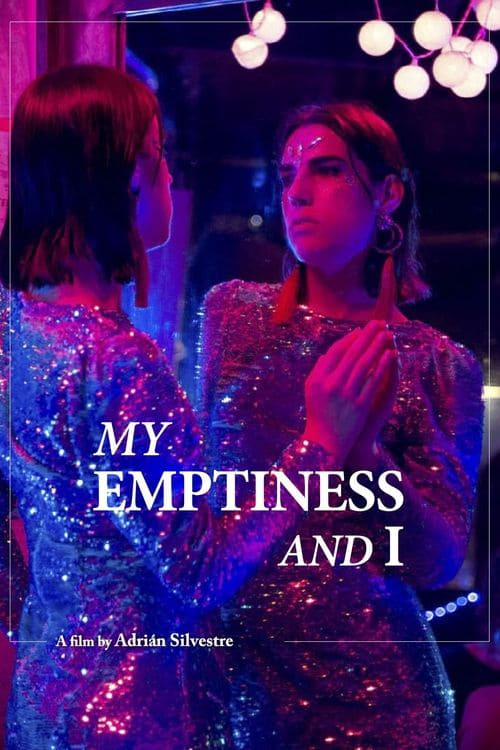
Was lucky enough to get a sneak peak at My Emptiness and I at this year’s Catalan Film Festival. It’s directed by Adrian Silvestre who did Sediments, and you know I loved that.
My Emptiness and I was co-written by and stars Raphaelle Perez, an artist and activist who created a piece for theatre about her experiences as a trans woman. Drawing upon that, the film tells the story of a somewhat fictionalised version of Raphaelle, beginning from her first comprehension of her identity, her fears and doubts about transitioning, navigating dating and transmisogyny, to the articulation and confidence she finds processing it all through her art. This film is super vulnerable. Instead of the usual retread of the cycle of rejection, transformation, then acceptance by a cis world which is the staple designed for a cis audience, this is a much more introspective film, about the inner emotional wrenchings that come from living in a society which seemingly has no place for you. My worry also, especially with a title like My Emptiness and I, was that it might be yet another film that portrays being trans as tragic, or a problem. Instead it is far more nuanced and fully realised, showing highs and lows and middles too, gender dysphoria and gender euphoria, its far-reaching intersectional impact on Raphi’s life but also that it is what, not who she is. Ultimately it is a story in which she reclaims herself.
The film begins with Raphi bringing home a guy for a sexual encounter only to become visibly upset. The next scene is a doctor taking her through a bunch of questions about her gender that she can’t answer, doesn’t understand, and which feel invasive and humiliating. Which is how she learns she has gender dysphoria. And I just loved that, because when did you last see a trans person on film or tv go through the experience of gender dysphoria, be led to it through diagnosis, or struggle to see themselves in it upon first hearing it? Like, almost never. So many trans characters have to come in hyper-confident in their own identity, armoured with certainty about their knowledge of themselves, because they are going into a hostile world. But like, aren’t most characters’ journeys ones of self-discovery? Don’t most people feel like their identity is an ever-shifting, constant recreation across the different contexts that make up their lives? Why must trans characters always have to be imperviously competent? That’s what I liked most about My Emptiness and I, that vulnerability, which when you see it, you realise how rarely you get to see it. So much of the time trans stories focus on doing battle with the cis world, and while Raphi does have to do that, this is her story as a conversation with herself.
I also loved that opening to the film, because representation matters so much. How do you know you’re experiencing gender dysphoria, if you never see anyone experiencing gender dysphoria? What would that even look like? Raphi doesn’t understand why she’s bursting into tears in these interludes, she’s had to go to a psychologist to find out. And so many people are not going to see themselves in a trans character who has always known that their gender is the root cause of their feelings of discontent, and if that’s not their experience, when will they ever see that sense of difficult-to-articulate misalignment reflected back at them?
The film is very slice-of-life. Small everyday encounters, dates in coffee shops, people-watching in the park, bad days a work, calls on the phone to her parents, and going to her trans women’s group to chat about her worries and fears. Which – I was delighted to see the lasses from Sediments at the group in those scenes! When I saw Cristina and Yolanda I just wanted to throw my arms around them and ask, “How you been hen?” Those scenes are so great, because it’s really important to see that Raphi’s story is just that, her story, and it is not THE trans woman’s story. There are a myriad of experiences and different viewpoints and it’s great that is underlined by these scenes.
Yes, My Emptiness and I is tinged with melancholy, apart from anything else because it’s about a 20-something-year-old romantic, whose particular brand of being Not Good Enough (the sentence stamped onto every woman) makes her feel unloveable. But it is also a story about a young woman finding her footing, in a world where every step is a fight. And in her persistence is an insistence of her own validity and worth. So good.